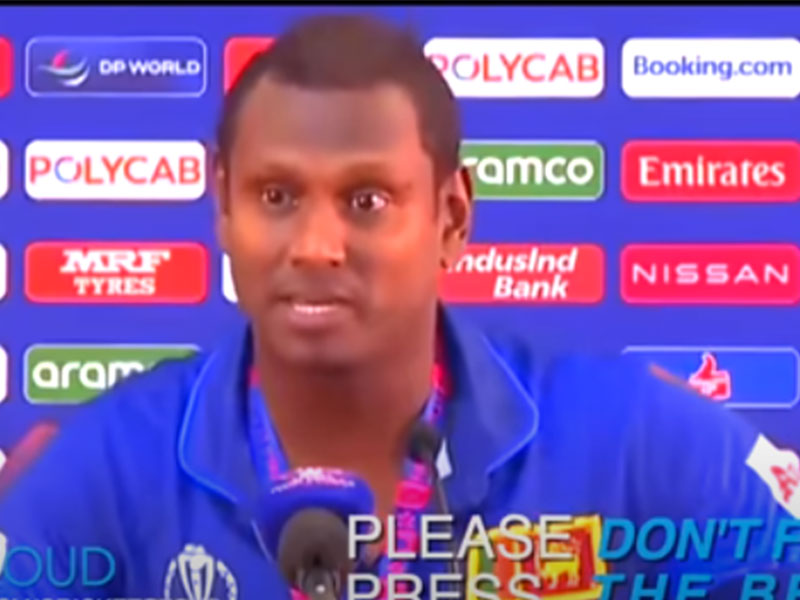In the high-stakes arena of international cricket, where every decision can make or break a game, the spirit of sportsmanship often takes a backseat to the pursuit of victory. Such was the case in the recent World Cup 2023 match between Bangladesh and Sri Lanka, where a controversial timed-out dismissal sparked a heated debate about the balance between rules and sportsmanship.
At the heart of the incident was Sri Lankan batsman Angelo Mathews, who found himself at the crease following the dismissal of his teammate in the 25th over of the Sri Lankan innings. However, before he could take a strike, his helmet strap broke, necessitating a replacement. While Mathews waited for the new helmet, the clock ticked down, and by the time he was ready to face the first ball, more than two minutes had elapsed.
Bangladesh captain Shakib Al Hasan, sensing an opportunity, appealed for timed out, citing the rule that mandates a batsman to be ready to face the ball within two minutes of the previous dismissal. On-field umpires Marais Erasmus and Richard Illingworth, despite initially asking Shakib to withdraw the appeal, upheld it after consulting with the fourth umpire.
The decision sent shockwaves through the cricketing world, with many questioning the fairness of the appeal, especially considering Mathews’ genuine equipment malfunction. Former cricketers and fans alike took to social media, expressing their disappointment and calling for a review of the timed-out rule.
Shakib, however, stood firm in his decision, asserting that he was simply following the rules of the game. He argued that if anyone had a problem with the rule, they should take it up with the ICC, the governing body of cricket.
Matthews, on the other hand, expressed his frustration, claiming that he had video evidence to prove he was at the crease within the stipulated time and that the umpires should have used common sense. He also questioned the spirit of the game, suggesting that Shakib could have withdrawn the appeal in light of the circumstances.
The incident has ignited a debate about the delicate balance between rules and sportsmanship in cricket. While rules provide a framework for the game, they should not be used as a tool to exploit loopholes or gain an unfair advantage. Sportsmanship, on the other hand, is the unwritten code of conduct that upholds the integrity and fairness of the game
The Shakib Al Hasan-Angelo Mathews incident highlights the need for a harmonious existence between rules and sportsmanship. Rules provide structure, while sportsmanship ensures that the game is played with integrity and respect for the spirit of competition. Cricket, like any sport, thrives on this delicate balance, and it is up to the players, umpires, and governing bodies to ensure that this balance is maintained.







